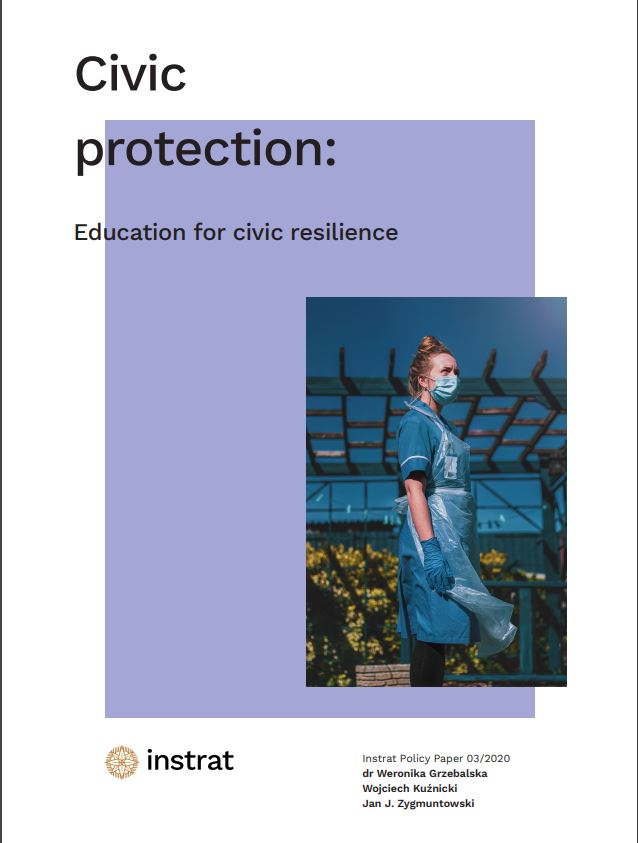In the second decade of the 21st century, the situation of relative stability in central-eastern Europe was markedly perturbed by a series of crises: the financial crash of 2008; Russian intervention in Georgia in 2008 and Ukraine in 2014; the Refugee Crisis, and the COVID-19 pandemic. In Poland, each of these crises exposed further national and regional institutional deficiencies, thus disturbing society’s sense of security.
Today, Poland faces a number of threats that are not entirely dominated by the spectre of military action or natural catastrophes, but also include socio-economic, hybrid and climacticsources and biological, as demonstrated by the COVID-19 pandemic.
From the given scenarios, the following specific effects may emerge:
- Civil unrest caused by economic crisis due to the disruption of the supply chain;
- Sustained disruption to the supply of electricity in large areas, giving rise to tensions in the performance of basic social functions and state institutions;
- Exacerbation of circulating disinformation, leading to loss of faith in state institutions and challenges to public order;
- Attacks on the information systems of state institutions, e.g., health, arresting the provision of basic health services to the population;
- Complex social, economic and biological effects of accelerating climate change.
It is thus necessary to adopt a holistic concept of civic resilience to address these concerns. This concept primarily recognises resilience as the fusion of social, political, economic, environmental and military factors, not as the simple ability to defend against conventional aggression from external forces. To assure local resilience, the Supreme Audit Office Civic protection would fill in the gaps left today, to complement the Territorial Defense Forces (WOT).
The most important recommendations for improvement of civil resilience embrace areas of competence, resources, ethos and institutions, including:
- Creation of a new up-to-date training system, complete with professional qualifications for educators, covering civil defence and accommodating improvement of individual civilian competences;
- Provision of supplies for individual security and safety factored through local production and distribution;
- Support for the creation of local rescue teams founded on the principles of citizen and community ethos;
- Increases to finance for duties of effective civil defence from central and community budgets;
- Acceptance of a legal framework for an effective civil protection system
– During the first stages of threat development, as we saw in the midst of the Covid epidemic, there form volunteer groups ready to diretly support in the most dire needs. But in a situation of prolonged threat, it is neccessary to achieve professional skills by the people supporting local governments in civil protection tasks – says Arkadiusz Nowalski, mayor of Sejny Municipality. – The tasks of civil protection educators will not overlap with tasks of professional services, they are to fill in the gaps. Educators will first of all inform the civil population about evacuation or the neccessity of isolation, quarantine, or measures to protect life and health such as access to drinking water, medicines etc. They will be people focusing mostly on transfering information from local governments to physically dispersed population.
– The epidemics is yet another evidence that the concept of civil defence must be expanded to cover a total civic or covil resilience. Not only conventional military threats, but also breaking of supply chains of food or electricity connected to climate changes, attacks on digital infrastructure or ethnic tensions inspired by hybrid war and disinformation – they all might hit local communities. There is a need for multi-elemental support and sustaining of activist capacity to provide grassroots help – claims Jan Zygmuntowski, chairman of Instrat think-tank and co-author of the report.
Recommended source: Grzebalska, W., Kuźnicki, W., Zygmuntowski, J.J., (2020). Ochrona obywatelska: Edukacja na rzecz obywatelskiej rezyliencji [Civic protection: Education for civic resilience], Instrat Policy Paper 03/2020


